Embarking on a research journey can be an exciting yet daunting endeavor, especially when it comes to navigating the visa application process. Whether you're a seasoned researcher or new to the academic world, understanding the intricacies of an embassy research visa application is crucial for a smooth transition. In this article, we'll break down the essential steps and provide helpful tips to ensure your experience is as seamless as possible. Let's dive in and explore what you need to know to get your research visa application on track!
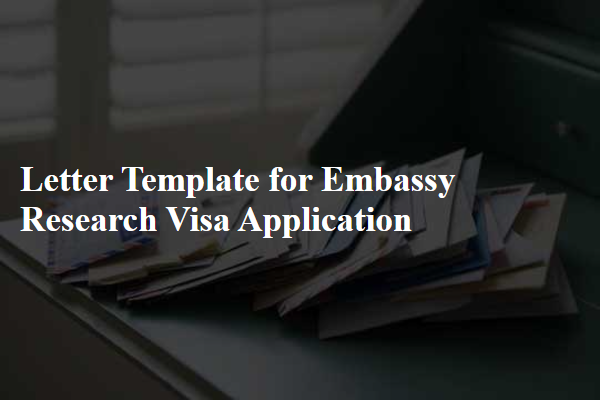
Applicant's personal information and academic background
The applicant, a graduate student at Harvard University, majoring in Environmental Science, holds a Bachelor of Science degree with honors from Stanford University. Currently pursuing a Master's degree focused on climate change mitigation strategies, the applicant has contributed to various research projects aimed at sustainable agricultural practices in developing countries. Relevant publications include a co-authored study in the Journal of Environmental Management, detailing the impact of renewable energy sources on local economies. With a solid GPA of 3.9, the applicant has engaged in internships at the United Nations and World Wildlife Fund, enhancing their understanding of global environmental policies. Additionally, the applicant has participated in international conferences in cities like Berlin and Tokyo, presenting discussions on biodiversity conservation.
Purpose and objectives of the research
The research aims to explore the impact of urbanization on biodiversity in metropolitan areas, with a specific focus on cities such as Sao Paulo, Brazil, where rapid growth has led to significant habitat loss. This study intends to systematically document species diversity in green spaces, such as parks and community gardens, utilizing methods like field surveys and ecological mapping. The objectives include assessing the correlation between urban development patterns from 2000 to 2023 and changes in local flora and fauna. Additionally, the research seeks to identify strategies for enhancing biodiversity conservation within urban planning initiatives. Data collection will be conducted over six months, collaborating with local universities and environmental organizations. This research is significant for policymakers and urban planners aiming to create sustainable urban environments.
Host institution and details of collaboration
The prestigious Massachusetts Institute of Technology (MIT), located in Cambridge, Massachusetts, serves as the host institution for the research collaboration. MIT's Department of Electrical Engineering and Computer Science has a well-established reputation in cutting-edge technology and innovation. The collaboration focuses on developing advanced algorithms for artificial intelligence applications, specifically in autonomous systems and machine learning. This partnership, expected to last for two years, aims to connect researchers from MIT with international experts to exchange knowledge and foster innovation. The project entails joint publications, shared resources, and regular workshops to enhance collaboration outcomes. Funded by the National Science Foundation, this research initiative promises to push the boundaries of current technology while addressing real-world challenges in automation and data analysis.
Duration and timeline of the research project
The research project spans a duration of twelve months, commencing in January 2024 and concluding in December 2024. The timeline encompasses several key phases, including a preliminary literature review from January to February, followed by data collection from March to August in the targeted regions of Germany, specifically Berlin and Munich. Analysis of gathered data will take place from September to October, with results being analyzed for academic publication in November and a final report due in December. The project aims to contribute to existing knowledge in the field of environmental science, particularly focusing on sustainable urban development practices.
Funding sources and financial support
Research visa applications require a detailed account of funding sources and financial support, crucial for ensuring adequate resources during the research period. Common funding sources may include grants from governmental organizations like the National Science Foundation (NSF), scholarships from universities, private sector sponsorships, or personal savings. Detailed documentation should include bank statements, grant award letters, and scholarship letters, clearly outlining amounts and intended use for expenses such as accommodation, travel, and research materials. A comprehensive financial plan enhances the application, demonstrating the applicant's ability to sustain their research within the host country. Financial support may also extend to collaborations with international institutions, showcasing partnerships which could further bolster the research's credibility and viability.
Letter Template For Embassy Research Visa Application Samples
Letter template of embassy research visa application for academic purposes.
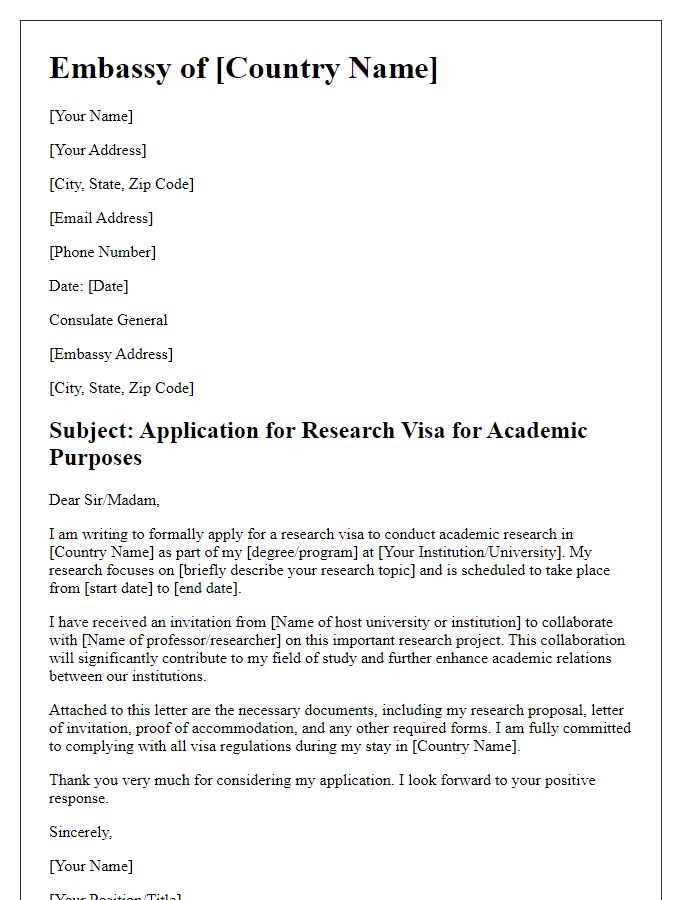
Letter template of embassy research visa application for collaborative projects.
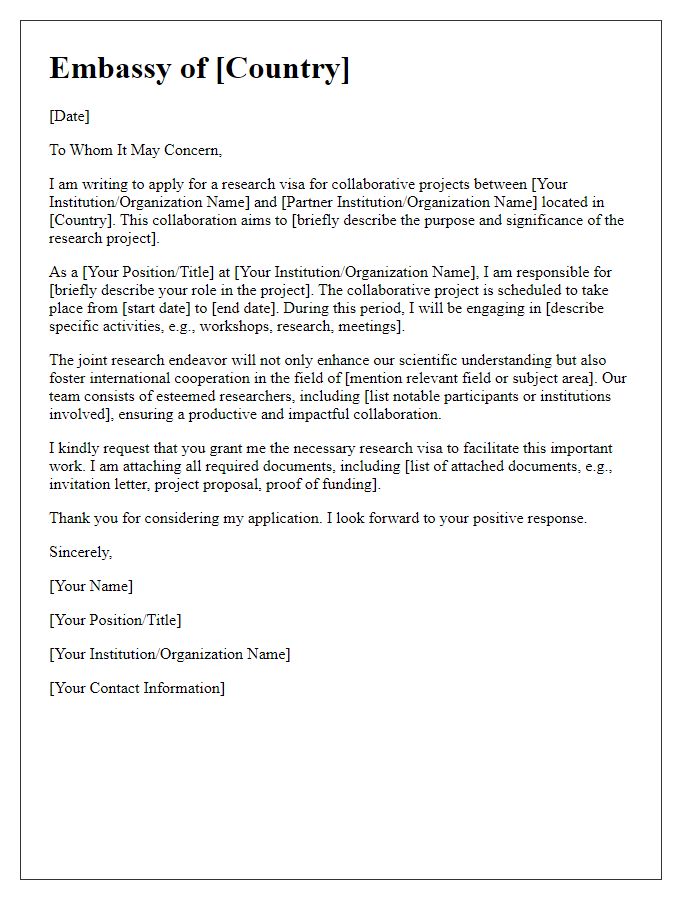
Letter template of embassy research visa application for scientific research.
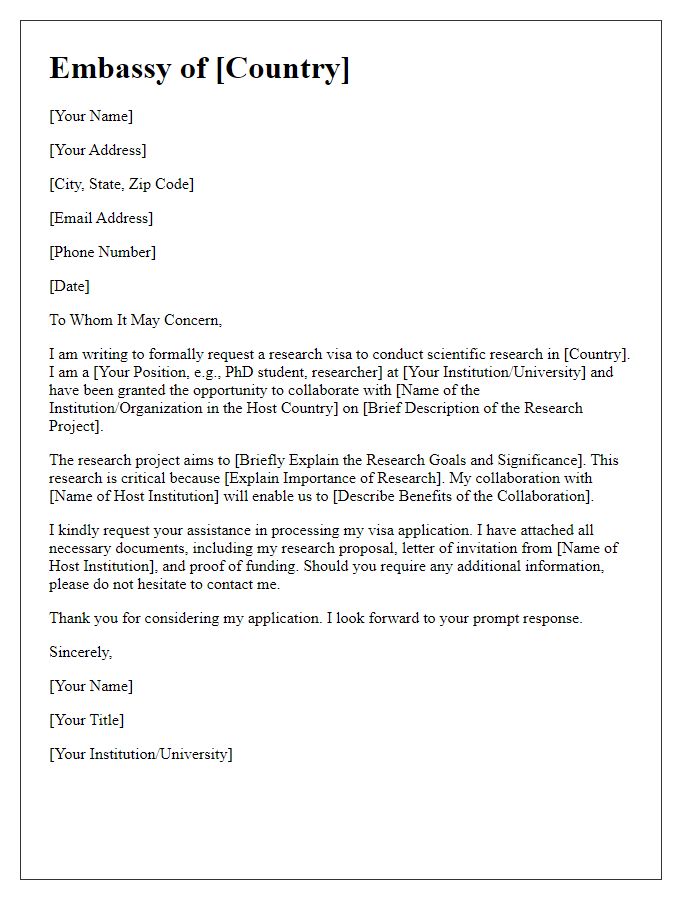
Letter template of embassy research visa application for data collection.
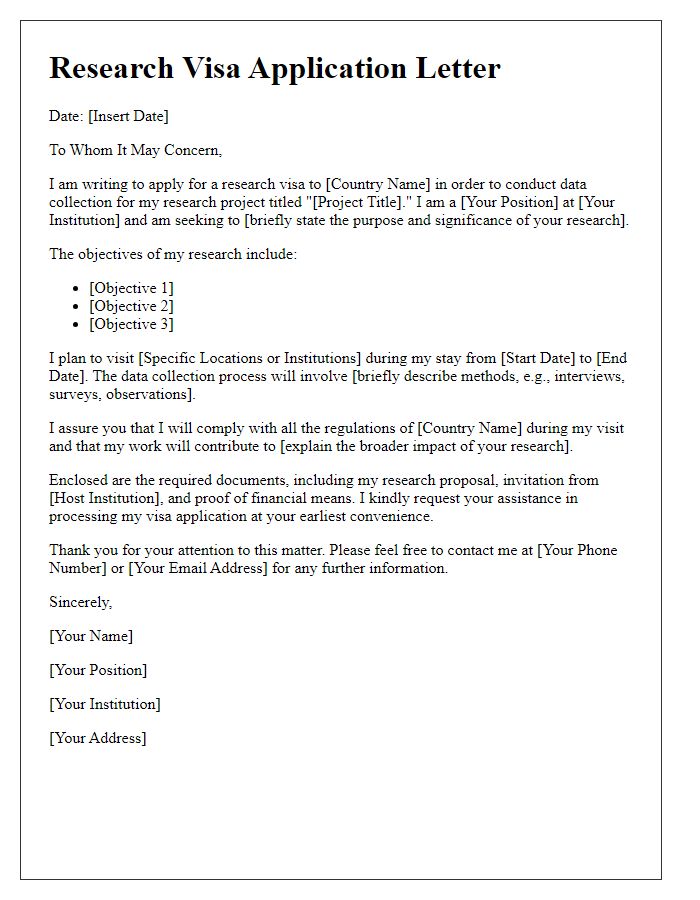
Letter template of embassy research visa application for internship programs.
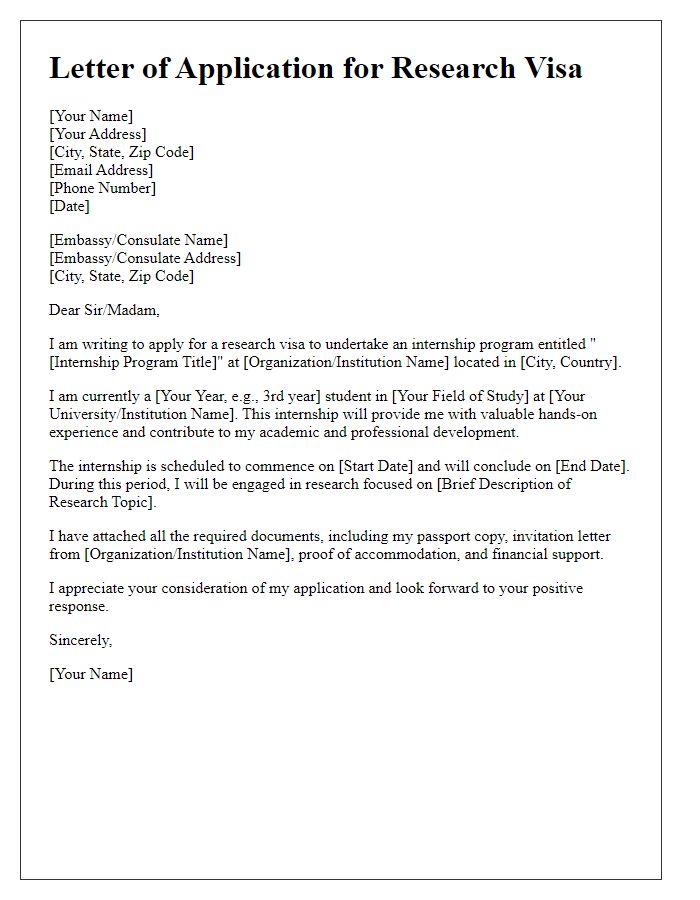
Letter template of embassy research visa application for cultural exchange.
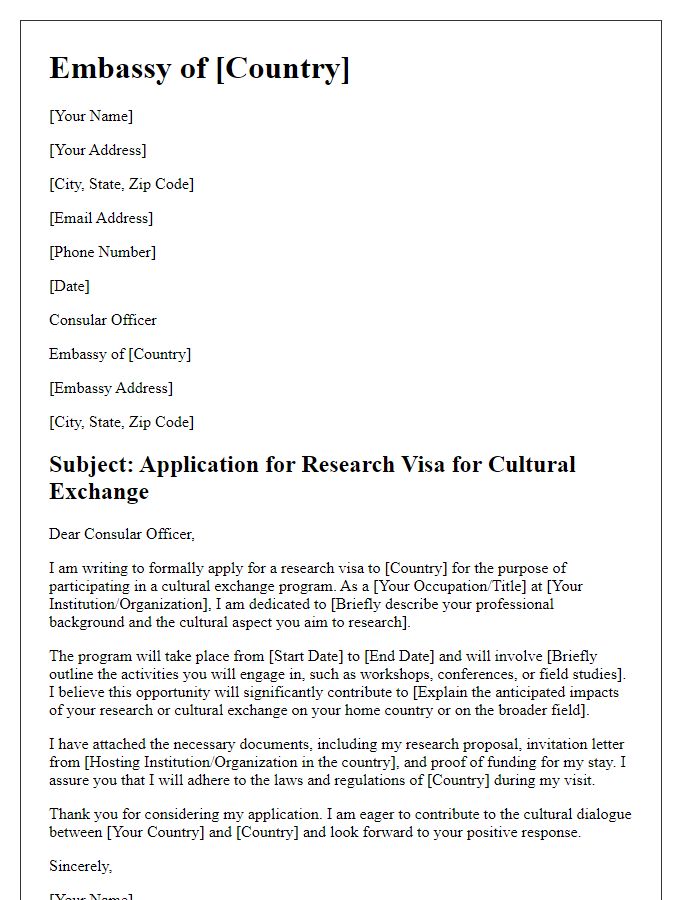
Letter template of embassy research visa application for educational conferences.
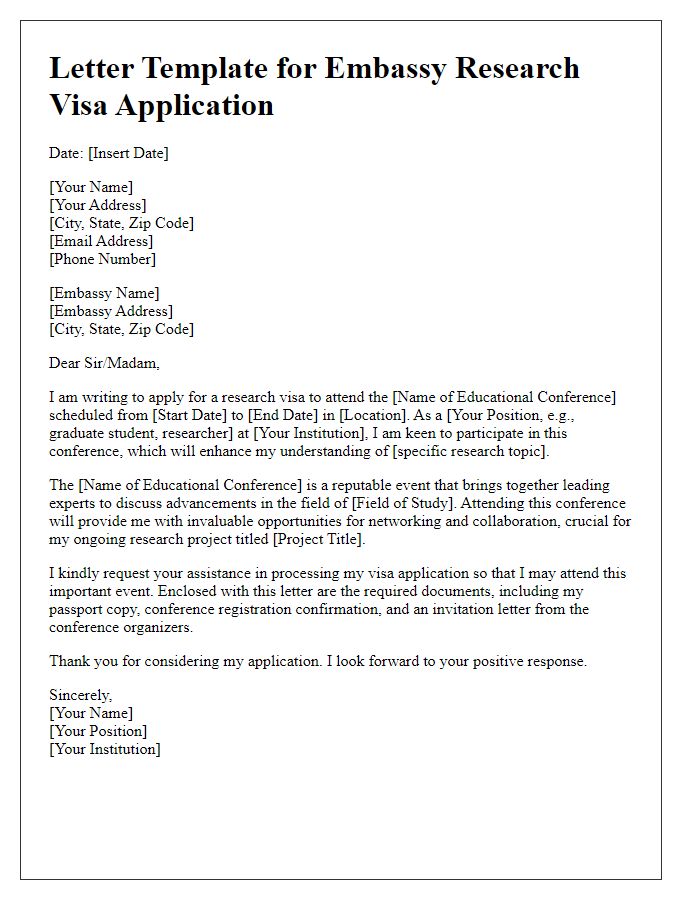

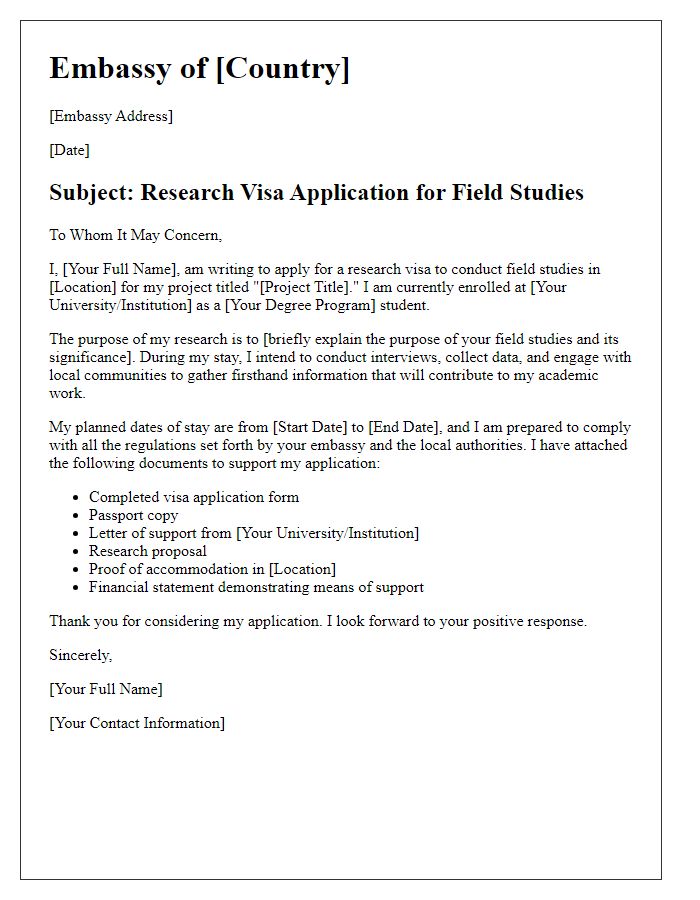
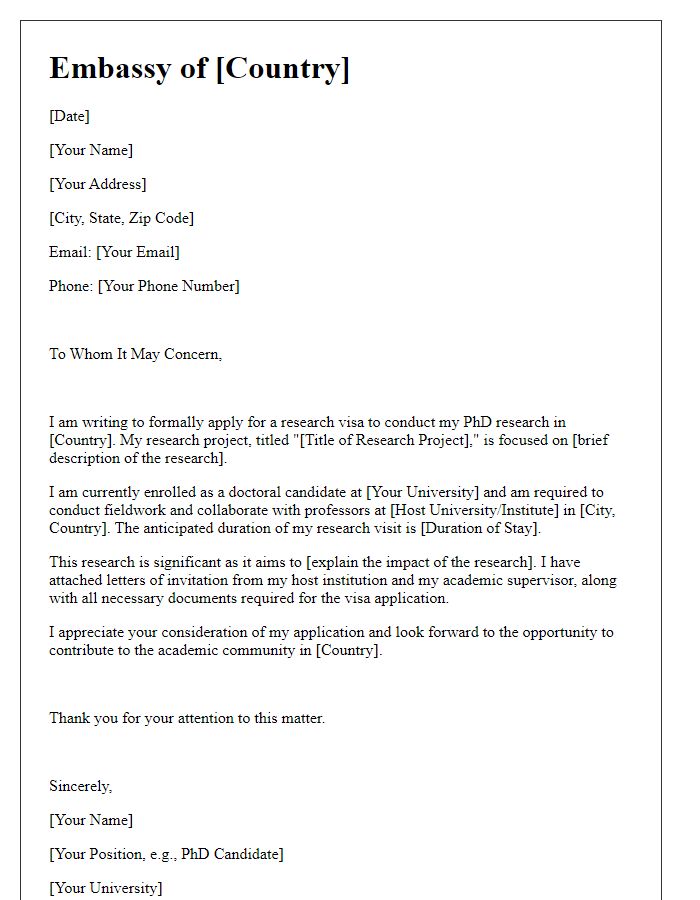
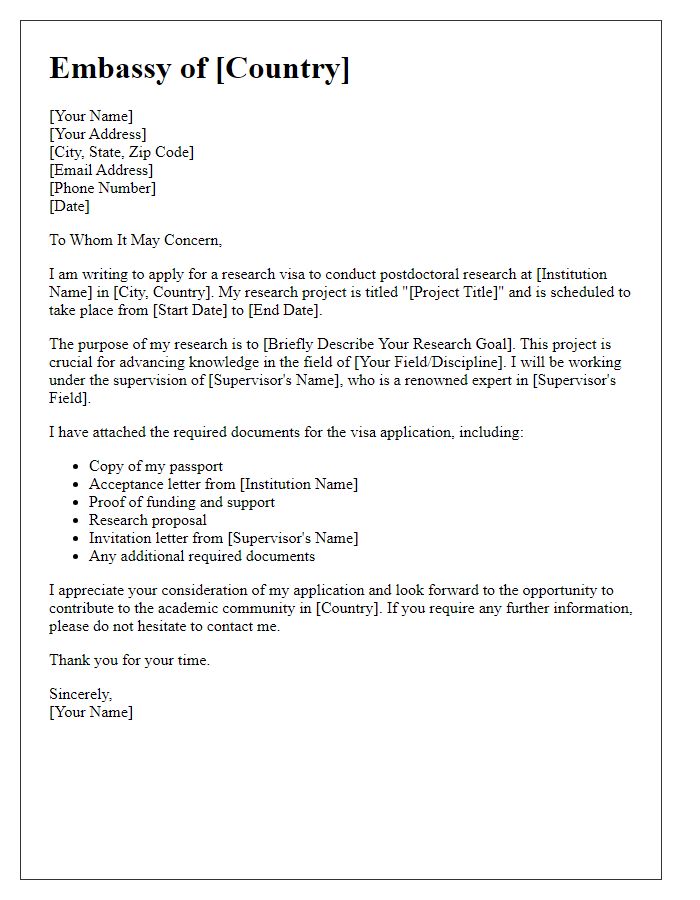

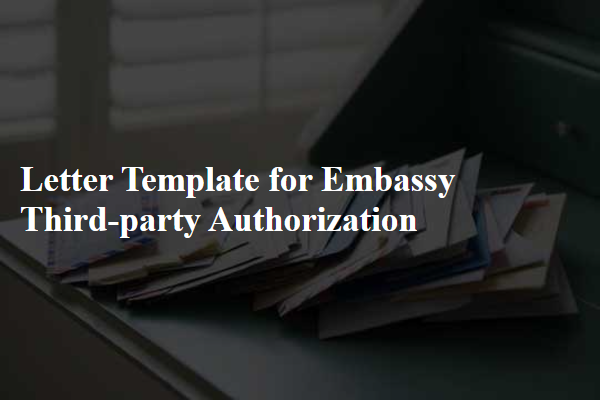
Comments